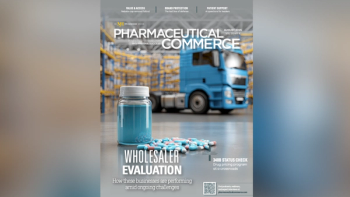
View the Pharmaceutical Commerce August 2025 issue in an interactive format.

View the Pharmaceutical Commerce August 2025 issue in an interactive format.

In the August issue of Pharmaceutical Commerce, dive into the vital role of drug wholesalers in today's complex pharma supply chain, along with content spotlighting evolving challenges patients face in accessing medicines.

Amid the topsy-turvy developments in global trade, one message appears certain for pharma manufacturers: the escalating need to stockpile inventory in the US.

Two Labs’ Michael Rowe assesses the industry’s level of preparation, including challenges stakeholders have encountered along the way.

Despite the ongoing turmoil over tariffs, medicine costs, and FDA policy, US wholesalers are performing well.

As pharma drug pricing debates heat up, the 340B program faces mounting challenges from outdated regulations, duplicate discounts, and limited transparency.

Pharma must align data, personalization, and cross-functional orchestration to deliver human-centered experiences that connect with patients, HCPs, and caregivers alike.

Conversation with chief tech expert explores AI’s rise in the support space—and separating the substance from the noise.

Counterfeit drugs infiltrating the US pharma supply chain through gray market channels underscore the urgent need for vigilance.

Why it’s time to act on passing key bills to boost access for millions.

From rethinking launch price logic to implementing rebate-aware modeling and patient-first access programs, this installment explores how disciplined governance and forward-thinking models can safeguard profitability in a volatile market.

The GSK Flovent example highlights the consequences for patients and pharma of the decision to eliminate the Medicaid rebate cap.

As the rising cost of prescription medications in the United States becomes an increasing barrier for millions of people, how can we effectively address and improve patient adherence?

As this medical approach continues to become more widely adopted, the industry must adapt to help provide precise, compliant, temperature-controlled delivery of highly individualized treatments.